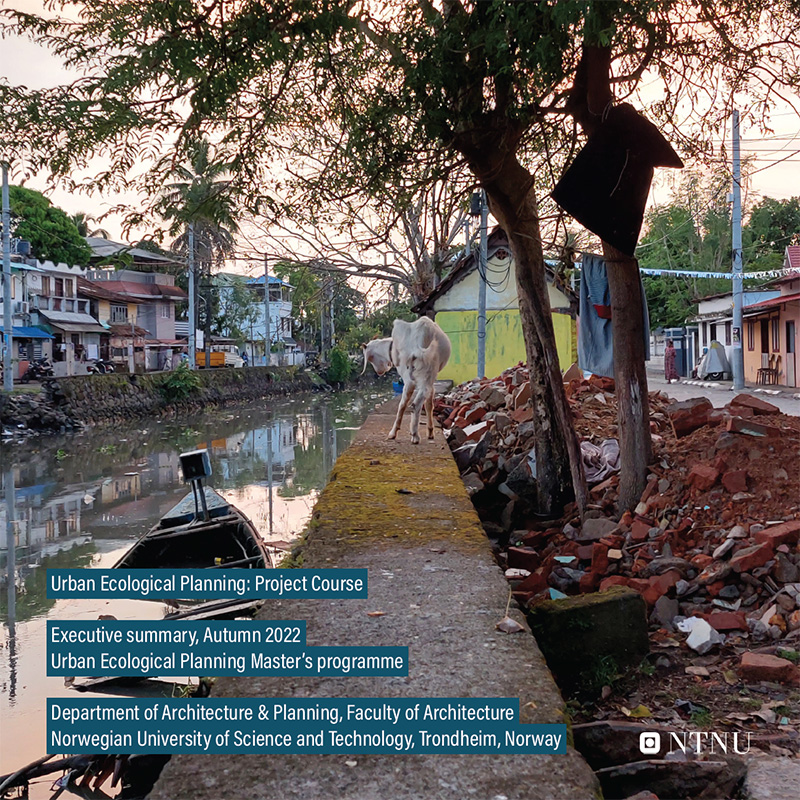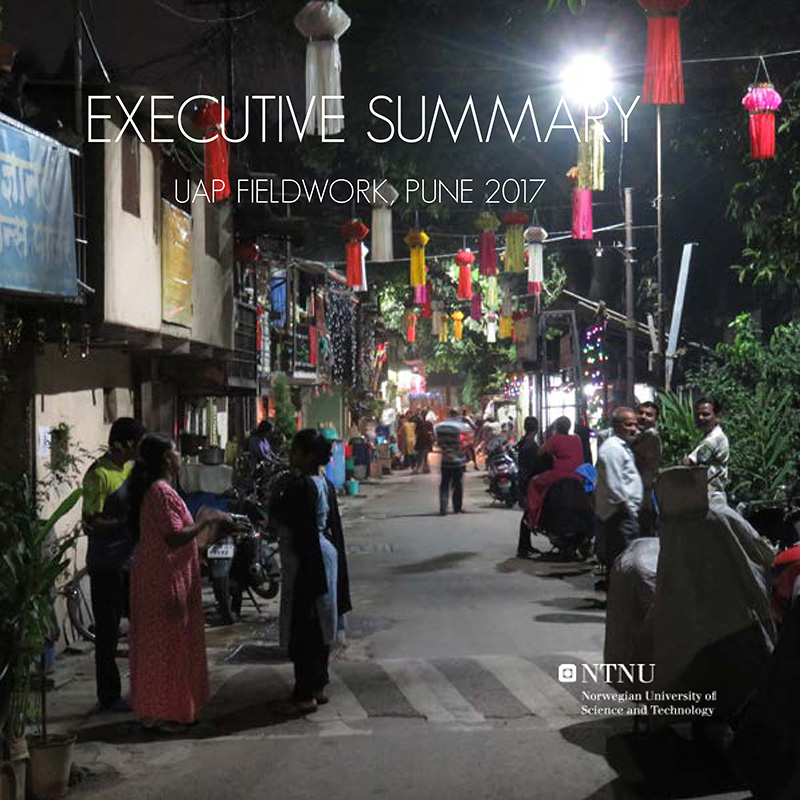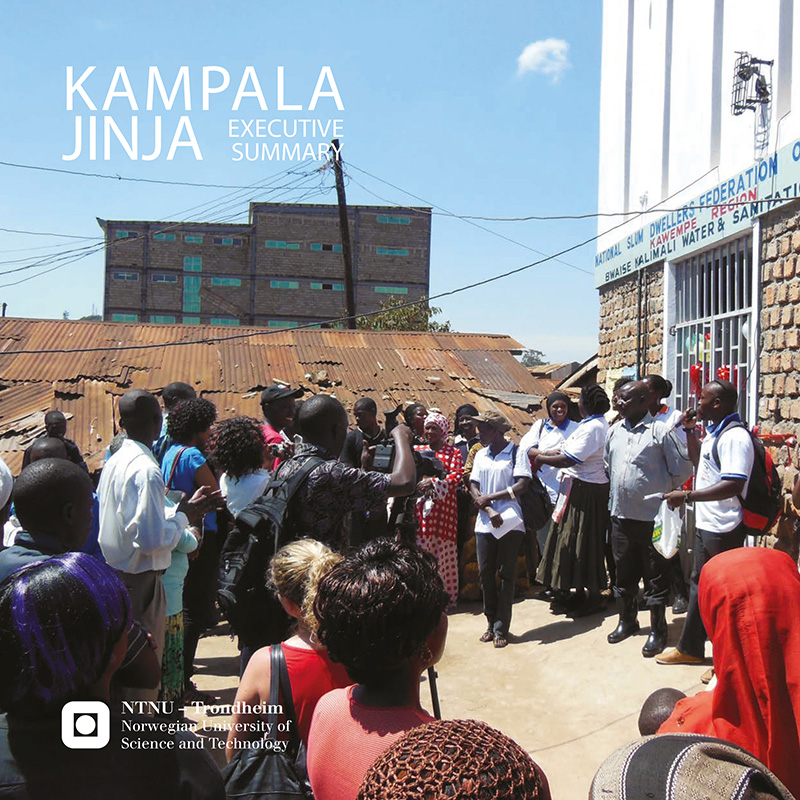Programme structure - Urban Ecological Planning (Master's Programme)
Programme structure
The program is divided into four semesters, each totalling in 30 ECTS. The study plan is structured in terms of obligatory courses, electives, and fieldworks.
In the first semester, you attend a mandatory fieldwork, undertaken by the whole class in an urban context relevant to the program. Two complementary theory courses help to improve your understanding of urban ecological planning concepts and theories, learning methods for participatory planning, and strengthen your research skills.
The second and third semester are composed of theory classes and electives that you can take from the Department of Architecture and Planning or other faculties, such as the Department of Geography.
Additionally, during the third semester, the main concepts necessary for writing a master’s thesis are introduced.
Finally, the second fieldwork or an internship is undertaken, forming the basis for your master’s thesis. The thesis is written in the last semester of the program and counts for 30 ECTS.
UEP Programme Organization
Fall semester 1
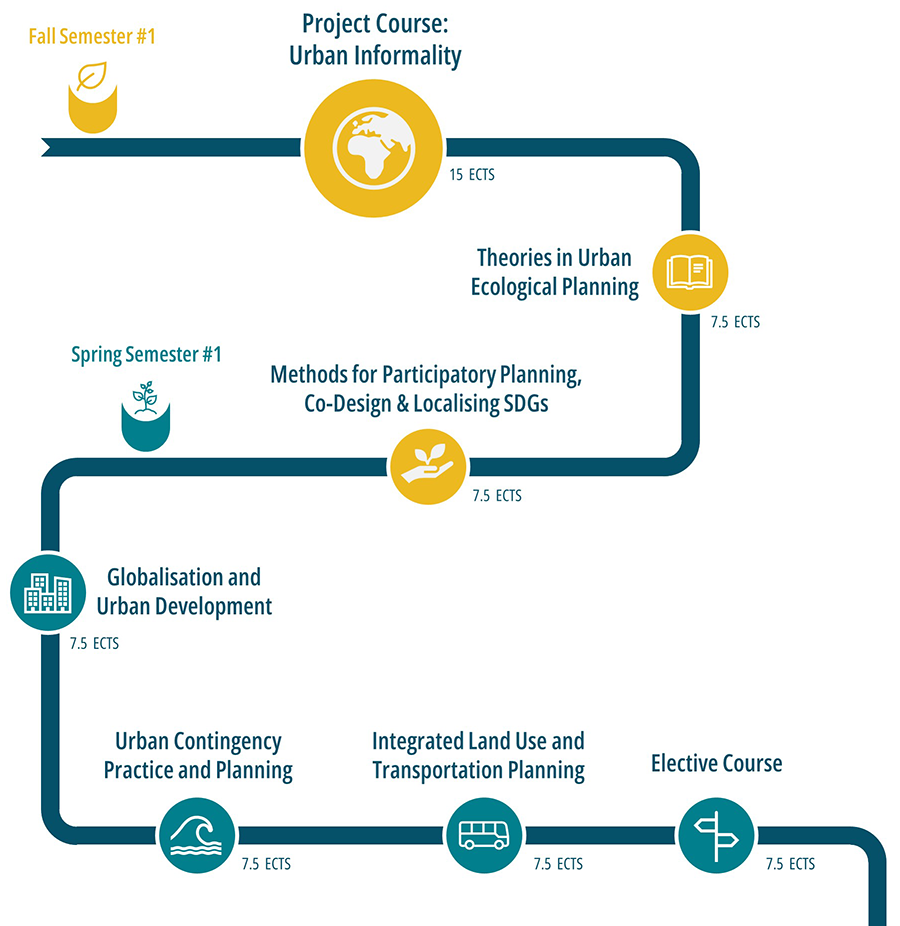
Fall semester 2
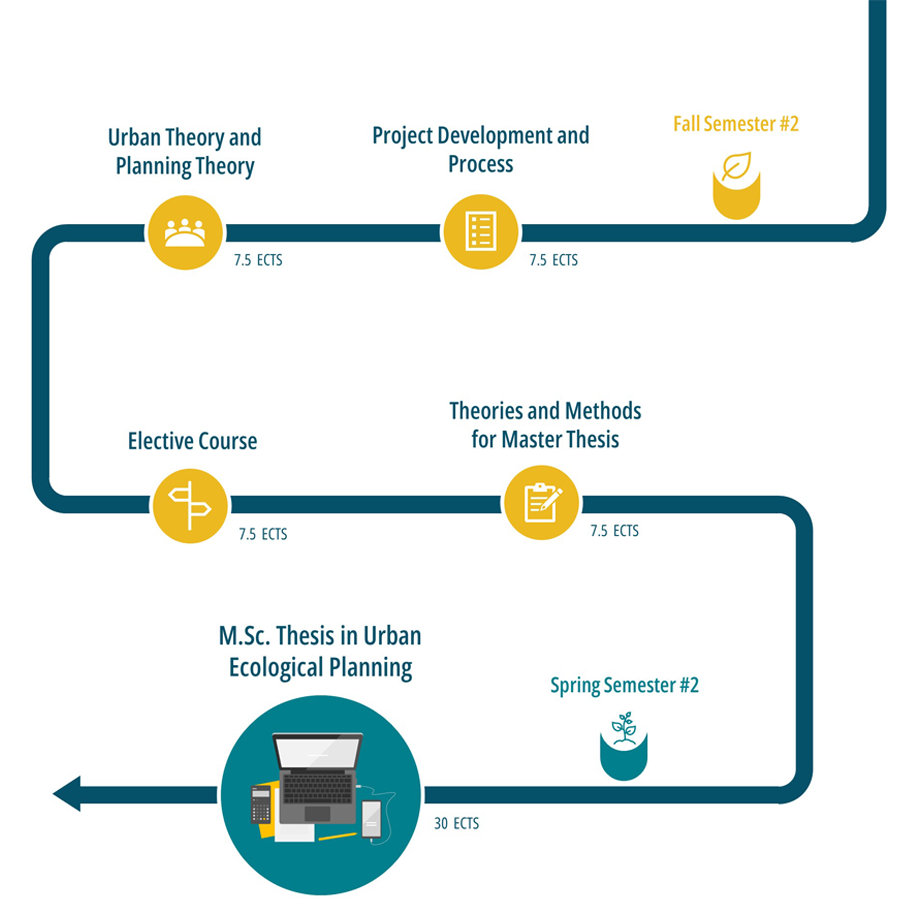
Fieldwork
Being a practice-based program, UEP is structured around group and individual fieldwork.
In the first semester, our programme starts with a group fieldwork in a relevant urban context. Students spend around 6-8 weeks in the field, typically abroad, to understand the challenges and strengths of neighbourhoods within urban areas, and deliberate on how to create opportunities for spatial, environmental and livelihood improvements. A sustainable approach is assumed to concentrate on building local responsibility and capacities for action planning.
This study is tailor-made to help students to:
- Understand the assets and dynamics of a defined area through interacting with its inhabitants, local authorities, and other stakeholders.
- Study the relations between the applicable formal laws and regulations imposed by the public authority and informal customs and practices.
- Be able to propose a physical or organisational intervention based on the dynamics of the community.
During the past years, the first semester’s fieldwork has taken place in Uganda, Nepal, India, and Norway. The first semester of the program is conducted in partnership with local universities, NGOs, bi- and multi-lateral agencies, and municipalities, often through ongoing projects at the UEP program, like the NISA partnership. During 2020, many students performed individual fieldwork, mostly in their home countries, due to the challenges posed by COVID-19 pandemic. The format of the fieldwork is flexible, and the project outcomes can take many different forms: from neighbourhood improvement and design proposals, to toolkits, action plans and spatial interventions.
Discover more fieldwork reports on our ISSUU page
Fieldwork- and Internship-Based Thesis
As a requirement, the master’s thesis in Urban Ecological Planning has to be based on fieldwork research or an internship. Students can conduct individual internships/fieldworks in their home cities, Norway, or other countries. So far, the individual fieldworks and internships have taken place in Bangladesh, Bhutan, Brazil, Bulgaria, Canada, Chile, China, Colombia, Denmark, Ethiopia, Finland, Ghana, India, Indonesia, Kenya, Lebanon, Mexico, Malaysia, Nepal, Norway, Pakistan, Peru, Russia, Singapore, Sweden, Tanzania, Thailand, Tibet, Uganda, Ukraine, and the USA.
The individual fieldwork/internship should take place either during the summer vacations between the second and third semester, or during the winter vacations between the third and fourth semester. Students may also apply for funding to conduct their fieldwork abroad, for example with the SAMAJ project, that lets students travel to Nepal for a part of their thesis semester.
Those who decide to engage in relevant internships will be eligible to sign up for an elective Internship course and claim 7.5 ECTS.
You can find some examples of UEP master’s theses on our Research page.
Field work reports
Study plan details
Check the current schedule for compulsory and elective courses by year and semester, as well as other details about the programme.
Study plan

